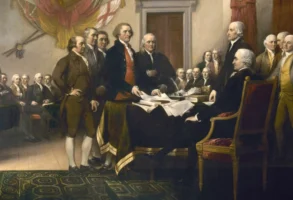
Published November 26, 2015
Evangelicals have been involved in the issue of animal welfare for more than 200 years, but we have often not stayed true to the focus of including every living thing in our concerns for life and dignity. Navigating this issue isn’t easy — animal welfare often raises concerns where there is certainly room for disagreement. One thing that is not open to debate is that as Christian believers we are morally obligated to listen closely to Scripture.
The controversy surrounding this issue often lies in a misunderstanding of the term “dominion” as set forth in the Old Testament. The Genesis account of creation provides the commonly cited passage which declares, “Then God said, ‘Let us make man in our image, after our likeness; and let them have dominion over the fish of the sea, and over the birds of the air, and over the cattle, and over all the earth, and over every creeping thing that creeps upon the earth.”
Although “dominion” is used in most translations of scripture to connote the responsibility God entrusts to man in relationship to creation, a modern understanding of this term is often laden with negative misconceptions of superiority toward a creation that God not only called “good” but also blessed. A proper understanding of the Biblical meaning of dominion, is closely associated with stewardship of all of creation, including animals. This means they rightfully belong to God and present a unique duty of care to each of us to seek their flourishing.
Equipped with this understanding of Biblical stewardship of animals, I, along with two co-drafters, developed an Evangelical Statement on Responsible Care for Animals. The Statement carefully relies on extensive support from Old and New Testament passages and demonstrates the significant priority that Scripture places on us to be responsible stewards of all of creation, including animals.
Scripture is clear that God designed creation to reflect His glory, and He protects and cares for creatures as an instructive model for our relationship with them as well. As Job declares in chapter 12:7-10 declares: “Ask the animals, and they will teach you, or the birds of the air, and they will tell you; or speak to the earth, and it will teach you, or let the fish of the sea inform you. Which of these does not know that the hand of the Lord has done this? In his hand is the life of every creature and the breath of all mankind.”
It is our view that we as Evangelicals cannot ignore this call from our Creator to responsibly care for animals.
The goal of the Statement and its campaign, Every Living Thing, is to encourage the Evangelical church to become a change agent on this important issue. Most importantly, it seeks to remind us that we are believers in a God that both created and celebrates life.
In 2011, Barrett Duke, Mark Rodgers and I began drafting a document that we hoped would transcend denominational boundaries by agreeing on a common objective: pursuing the good, pleasing and perfect will of God toward every living thing. In September 2015 we were pleased to finally share this Statement with the church and invite fellow believers into a place of productive conversation.
During the next year of national events associated with the campaign, I hope believers will examine what the biblical treatment of all animals’ means in their own life and work. It is our hope that we all will become more compassionate and active stewards of creation.
The great nineteenth century Reformed preacher and pastor, Charles Spurgeon, said this in 1873: “It is not only for the sake of the creature subject to cruelty that we would plead for kindness, but with a view to the good of the person causing the pain; for cruelty hardens the heart, deadens the conscience, and destroys the finer sensibilities of the soul. The most eminently spiritual men display great delicacy towards all living things … for the man who truly loves his Maker becomes tender towards all the creatures his Lord has made. In gentleness and kindness our great Redeemer is our model.”
Michael Cromartie is vice president of the Ethics and Public Policy Center and director of EPPC’s Faith Angle Forum.










